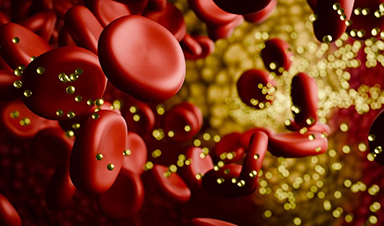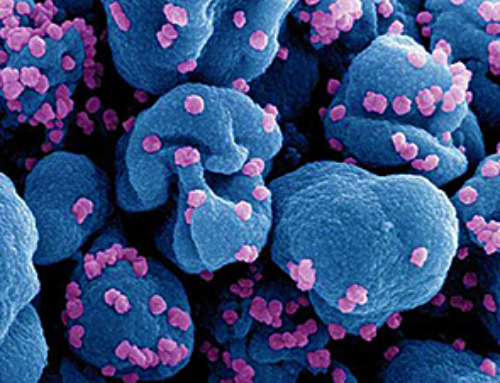Summary: Long-term COVID-19 symptoms, including brain fog, can significantly impair mental processes. Over 3,000 participants underwent two rounds of online cognitive testing, focusing on memory, attention, reasoning, processing speed, and motor control.
Those with prolonged COVID-19 symptoms saw effects comparable to a 10-year increase in age. Importantly, participants who felt fully recovered after their COVID-19 infection did not display impaired test performance.
Key Facts:
- The study showed that individuals experiencing long-term COVID-19 symptoms had a measurable decrease in mental process performance.
- The cognitive impact of prolonged COVID-19 symptoms was comparable to a 10-year increase in age.
- Participants who felt fully recovered after their COVID-19 infection demonstrated no significant cognitive impairment.
Source: King’s College London
UK researchers have found that people with longer-term COVID-19 symptoms including brain fog showed reduced performance in tasks testing different mental processes up to two years after infection with the virus.
Researchers from King’s College London looked at whether infection with COVID-19 affected performance in two rounds of online cognitive testing that took place in 2021 and 2022.
Data was collected for over 3,000 participants of the COVID Symptom Study Biobank study, across 12 tasks that tested memory, attention, reasoning, processing speed and motor control.
The participants whose test scores were most affected by COVID-19 were those who had experienced symptoms related to the virus for 12 weeks or more. In these people, the effect of COVID-19 on test accuracy was comparable in size to the effect of a 10-year increase in age.
Digging deeper into the analysis, the researchers separated participants by whether they felt fully recovered following COVID-19 infection.
People who felt fully recovered after COVID-19 infection performed similarly to those who had not had the virus at all. In contrast, participants who did not feel fully recovered after infection had lower task accuracy scores on average.
Lead author Dr Nathan Cheetham, a Senior Postdoctoral Data Scientist at King’s College London said:
“Our findings suggest that, for people who were living with long-term symptoms after having COVID-19, the effects of the coronavirus on mental processes such as the ability to recall words and shapes are still detectable at an average of almost two years since their initial infection.
“However, the result that COVID had no effect on performance in our tests for people who felt fully recovered, even if they’d had symptoms for several months and could be considered as experiencing ‘long COVID’, was good news.
“This study shows the need to monitor those people whose brain function is most affected by COVID-19, to see how their cognitive symptoms continue to develop and provide support towards recovery.”
Professor Claire Steves, a Professor of Ageing and Health at King’s College London, added:
“We used sensitive tests to measure speed and accuracy across a range of brain challenges. This study shows that some individuals have measurable changes in these tests after COVID-19 going on for nearly two years.
“The fact remains that two years on from their first infection, some people don’t feel fully recovered and their lives continue to be impacted by the long-term effects of the coronavirus. We need more work to understand why this is the case and what can be done to help
News
Scientists Melt Cancer’s Hidden “Power Hubs” and Stop Tumor Growth
Researchers discovered that in a rare kidney cancer, RNA builds droplet-like hubs that act as growth control centers inside tumor cells. By engineering a molecular switch to dissolve these hubs, they were able to halt cancer [...]
Platelet-inspired nanoparticles could improve treatment of inflammatory diseases
Scientists have developed platelet-inspired nanoparticles that deliver anti-inflammatory drugs directly to brain-computer interface implants, doubling their effectiveness. Scientists have found a way to improve the performance of brain-computer interface (BCI) electrodes by delivering anti-inflammatory drugs directly [...]
After 150 years, a new chapter in cancer therapy is finally beginning
For decades, researchers have been looking for ways to destroy cancer cells in a targeted manner without further weakening the body. But for many patients whose immune system is severely impaired by chemotherapy or radiation, [...]
Older chemical libraries show promise for fighting resistant strains of COVID-19 virus
SARS‑CoV‑2, the virus that causes COVID-19, continues to mutate, with some newer strains becoming less responsive to current antiviral treatments like Paxlovid. Now, University of California San Diego scientists and an international team of [...]
Lower doses of immunotherapy for skin cancer give better results, study suggests
According to a new study, lower doses of approved immunotherapy for malignant melanoma can give better results against tumors, while reducing side effects. This is reported by researchers at Karolinska Institutet in the Journal of the National [...]
Researchers highlight five pathways through which microplastics can harm the brain
Microplastics could be fueling neurodegenerative diseases like Alzheimer's and Parkinson's, with a new study highlighting five ways microplastics can trigger inflammation and damage in the brain. More than 57 million people live with dementia, [...]
Tiny Metal Nanodots Obliterate Cancer Cells While Largely Sparing Healthy Tissue
Scientists have developed tiny metal-oxide particles that push cancer cells past their stress limits while sparing healthy tissue. An international team led by RMIT University has developed tiny particles called nanodots, crafted from a metallic compound, [...]
Gold Nanoclusters Could Supercharge Quantum Computers
Researchers found that gold “super atoms” can behave like the atoms in top-tier quantum systems—only far easier to scale. These tiny clusters can be customized at the molecular level, offering a powerful, tunable foundation [...]
A single shot of HPV vaccine may be enough to fight cervical cancer, study finds
WASHINGTON -- A single HPV vaccination appears just as effective as two doses at preventing the viral infection that causes cervical cancer, researchers reported Wednesday. HPV, or human papillomavirus, is very common and spread [...]
New technique overcomes technological barrier in 3D brain imaging
Scientists at the Swiss Light Source SLS have succeeded in mapping a piece of brain tissue in 3D at unprecedented resolution using X-rays, non-destructively. The breakthrough overcomes a long-standing technological barrier that had limited [...]
Scientists Uncover Hidden Blood Pattern in Long COVID
Researchers found persistent microclot and NET structures in Long COVID blood that may explain long-lasting symptoms. Researchers examining Long COVID have identified a structural connection between circulating microclots and neutrophil extracellular traps (NETs). The [...]
This Cellular Trick Helps Cancer Spread, but Could Also Stop It
Groups of normal cbiells can sense far into their surroundings, helping explain cancer cell migration. Understanding this ability could lead to new ways to limit tumor spread. The tale of the princess and the [...]
New mRNA therapy targets drug-resistant pneumonia
Bacteria that multiply on surfaces are a major headache in health care when they gain a foothold on, for example, implants or in catheters. Researchers at Chalmers University of Technology in Sweden have found [...]
Current Heart Health Guidelines Are Failing To Catch a Deadly Genetic Killer
New research reveals that standard screening misses most people with a common inherited cholesterol disorder. A Mayo Clinic study reports that current genetic screening guidelines overlook most people who have familial hypercholesterolemia, an inherited disorder that [...]
Scientists Identify the Evolutionary “Purpose” of Consciousness
Summary: Researchers at Ruhr University Bochum explore why consciousness evolved and why different species developed it in distinct ways. By comparing humans with birds, they show that complex awareness may arise through different neural architectures yet [...]
Novel mRNA therapy curbs antibiotic-resistant infections in preclinical lung models
Researchers at the Icahn School of Medicine at Mount Sinai and collaborators have reported early success with a novel mRNA-based therapy designed to combat antibiotic-resistant bacteria. The findings, published in Nature Biotechnology, show that in [...]





















